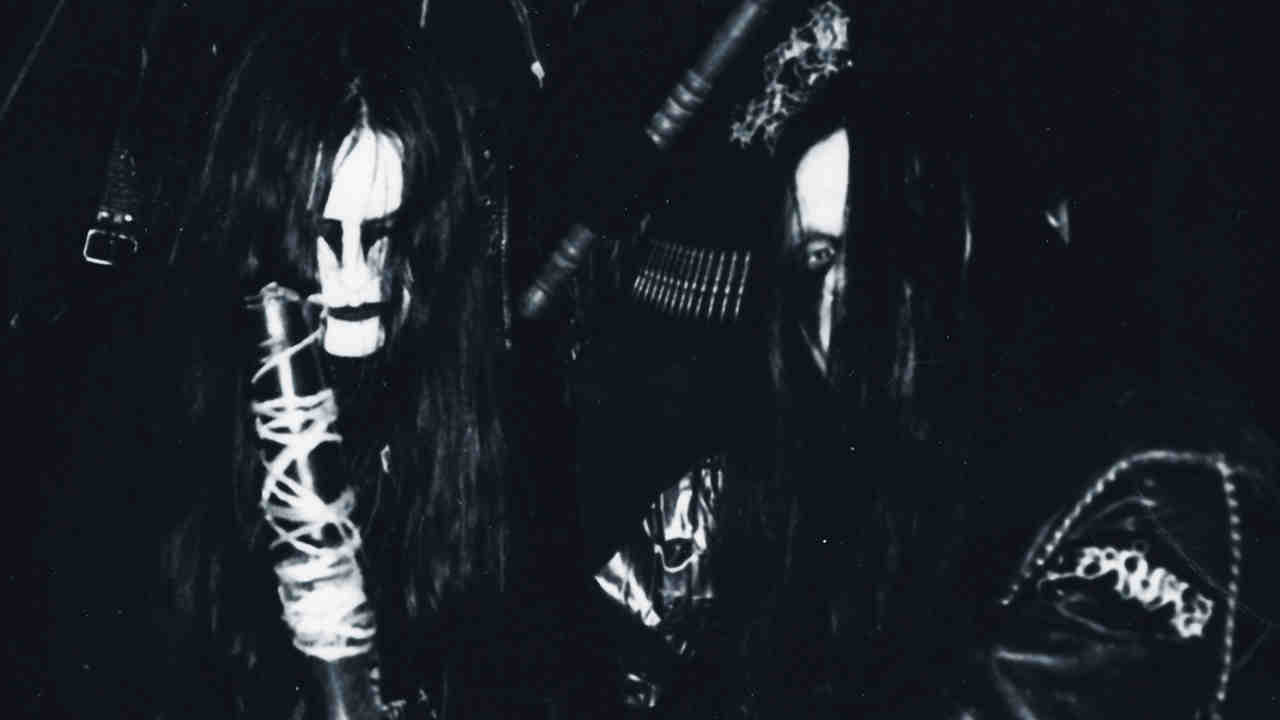What They Don't Tell You When You Become A DIY Band
Future Of The Left's Andrew Falkous on unpaid rock admin and the secret of writing a good album

Select the newsletters you’d like to receive. Then, add your email to sign up.
You are now subscribed
Your newsletter sign-up was successful
Want to add more newsletters?

Every Friday
Louder
Louder’s weekly newsletter is jam-packed with the team’s personal highlights from the last seven days, including features, breaking news, reviews and tons of juicy exclusives from the world of alternative music.

Every Friday
Classic Rock
The Classic Rock newsletter is an essential read for the discerning rock fan. Every week we bring you the news, reviews and the very best features and interviews from our extensive archive. Written by rock fans for rock fans.

Every Friday
Metal Hammer
For the last four decades Metal Hammer has been the world’s greatest metal magazine. Created by metalheads for metalheads, ‘Hammer takes you behind the scenes, closer to the action, and nearer to the bands that you love the most.

Every Friday
Prog
The Prog newsletter brings you the very best of Prog Magazine and our website, every Friday. We'll deliver you the very latest news from the Prog universe, informative features and archive material from Prog’s impressive vault.
“Generally speaking, rock ’n’ roll does not encourage people with a strong work ethic. You don’t get teenage boys picking up guitars because they like getting up early in the morning and working hard…”
Newcastle-born Future Of The Left frontman Andrew Falkous isn’t one to mince his words. His band – who recently slimmed down to a trio after the departure of guitarist Jimmy Watkins – have just released their fifth album The Peace & Truce Of Future Of The Left on their own Prescriptions label.
It has everything you’d expect from a Future Of The Left release; it’s angry, contrary, irascible and doesn’t sit on one idea for too long. There’s also plenty of humour to be found within its songs, too.
That’s something some people tend to overlook, but when you’re talking to Falkous – who spends the first few minutes of this interview ruminating on the various joys of eating strawberry-flavoured Cornetto ice cream – it becomes very obvious. He talks – a lot – and goes off on tangents, but in doing so, but in doing so reveals the way in which his brain cogs work, which goes quite some way to explain why the band remain one of the UK’s most intriguing, inventive and excellent bands.
Future Of The Left formed 11 years ago. How have things changed during that time?
Andy Falkous: “Have things changed? I don’t think you tend to notice change unless it comes up to you wearing a fucking t-shirt which says ‘Hello, I’m change’ and smashes you over the head with the immediate implications of it. Life doesn’t tend to work in that way, and thing sometimes change so slowly that it’s very difficult to remember what they were like in the first place. If you see a friend who loses a lot of weight, but you see them every day, you don’t notice the change, but if you haven’t seen them for six months and they turn up and they’ve lost four stone and look as if they’ve been drained, then the weight loss becomes very apparent. And I hope that tedious analogy will firmly illustrate how I feel about change! People have come and gone for various reasons, but it’s still just a compulsion to make music and to have fun doing it. Sometimes, for people, there are doubts or other parts of life which take them away from being able to do music, either temporarily or permanently, and I’m lucky I haven’t had one of those instances in my life yet, but for some people it’s kids, for another person it’s money, for another it’s direction and wanting to feel as if everything they do creatively is very pure. I mean, I’m still obsessed with it. I just wish it was more music and less admin.”
Taking care of the band’s daily business must be a drain on your time.
“Being in a band – probably particularly at the size we are, where we’re of a size enough to be an ongoing financial concern that can at least break even and support itself, but not big enough to employ someone like a manager – we spend a lot of time doing sums and making arrangements, and not that much time actually playing rock music. That’s basically the only bad bit about it. It’s nobody’s dream to be an unpaid admin worker! Admin should come with fucking compensation. But that’s just the way it goes, and if it gets to the point where that becomes too much of a pain in the arse, you just fucking stop it.”

Is it hard to not let that stuff overshadow the actual music?
“The process of playing music is enjoyable to me. Occasionally, like even with something or somebody you love, it gets on your tits and you don’t enjoy it as much. Occasionally, it’s disappointing. About 10 per cent of our shows are disappointing for one reason or another – because the venue’s a piece of shit or because we don’t play well. But sometimes, when myself and Julia go to rehearsal, it’s an amazing thing to actually pick up guitars and play, because we spend much more time talking about how we’re going structure this or afford to do that or who we’re going to be using for sound here or how much we should be charging for…you know. That’s not why I got into playing the guitar. I’m not complaining – that’s the price we have to pay for it.”
The latest news, features and interviews direct to your inbox, from the global home of alternative music.
You seem to be a band who have never compromised or diluted your sound in order to make more ends meet, as it were – but maybe you’re making your own lives harder as a result.
“Possibly. I mean, if you look at all the songs over the five records, and a couple of Mclusky ones, there are definitely some songs that sound a little bit cleaner and which are, for want of a better term, radio friendly, but not to the point of distraction. Sometimes, during the writing process, you’ve got to be honest with yourself – you grow up listening to music, and even though I have friends who claim that they liked Captain Beefheart and The Fall when they were seven. That’s certainly not the musical path I had – you tend to eventually fall into music like that, as opposed to being born that avant-garde. Which we’re certainly not, that’s the thing. We’re just a loud pop band. Not every song is in a classical pop format – far from it – but everything is based around a song. The riffs are irrelevant unless they sit with the melody. So musically, I think when a song comes along and appears in the rehearsal room and takes its trousers off – or whatever the hell a song does when it turns up – you need to respect what the hell it is. I’ve definitely been in bands with people who’ve written a song and, when they get to the chorus, they think that it’s too chorus-y, that people will think they’re deliberately trying to be listenable, and for me, applying that mindset to music is as bad as deliberately setting out to write a vacuous hit single. You need to go with it. And I’m not saying you just go with everything mindlessly and end up writing a bunch of songs which sound like children’s nursery rhymes, but there should be a naturalness to writing. I’ve known bands who have gone for the big dollar, but also, on the other side of the coin for people who have different priorities, seen bands deliberately sabotage their songs. Which, one level, is pretty funny and interesting, but on another level is just snobbery made tuneless flesh.”
The Peace & Truce of Future of the Left sounds abrasive like your earlier records. Was that deliberate?
“The last album [2013’s How To Stop Your Brain In An Accident] was very colourful and, for want of a better term, very widescreen in terms of our sound. It went through a lot of different shifts and colours. This album is more intense and it sounds like more of an album, I think, which will please some people and will please some other people less. But that’s the beauty of why a band gets to record a lot of different albums with a lot of different songs. This album was deliberately written to all be played live, as opposed to the normal way we write, which is to write some songs and then to see what happens.”
It sounds like there are more characters, or personalities, on this record and in these songs than you’ve had in the past – it’s cohesive sonically but the songs all quite eclectic in terms of their sensibilities.
“Sensibilities rather than sound – that would make sense. It’s difficult. It’s like when a novel is ‘about’ something – you want the novel to be about something, but not in a way where everything is smashed into your head non-stop the whole time. To read a novel set around slavery, for example, you don’t need somebody to turn up every page and go ‘In case you’ve forgotten, slavery was bad. And now on with the story.’ And it’s the same with music. We’re lucky in the way that we’re generally received, in that most of the people who’d consider themselves fans or supporters of our music would pretty much be of the same mind as us, politically and socially. When a band reaches more people than that, there obviously becomes a dissonance – not in the message, but in the way things are understood. For example, we can play Robocop 4 off our third album, which is just about shitty franchised films, but from the characters’ perspective, but that is a song which people – dumber people, stupider fucking people – will have heard and they’ll put messages on message boards saying ‘What?! This guy doesn’t love action films?!’ and you go, ‘Yeah, yeah, of course.’ Because everything in this world is literal. Someone who’s a fan doesn’t need to have that explained to them. Sometimes that can be a worrying thing and a restrictive thing, like when we toured, as Mclusky, and we managed to somehow tour the States three times in the midst of an election cycle. It’s really fascinating stuff on many levels, but I remember saying lightly humorous stuff about George W. Bush onstage in 2004 and in terms of the tour I think there was one dissenting voice on the whole thing. I say that as a credit to our crowd, but you know – people talk about the echo chamber of social media today, but even as a band who lean to the left without being a bunch of dicks about it, I think it was an echo chamber then. I wouldn’t say it’s a shame, but it’s very difficult to know how to be taken properly once you step out of the echo chamber, I suppose. You have to kind of rely on the fact that people are accepting you, if not on your face value, at least they have a concept of what face value is. And sometimes, when you play to people who don’t know your music, that’s when you get the most honest responses. I don’t know what I was talking about there, but it seemed profound, so I’m going to go with it.”
You’re definitely a misunderstood band. You come across as bitter and angry and vitriolic and curmudgeonly, but people overlook the fact your songs are actually full of humour.
“I don’t think it’s an anomaly in music, because I think there are plenty of bands who do it to varying degrees of success, but it’s not a lot to be a part of mainstream – and I use that term advisedly – music. And words like ‘curmudgeonly’ are pejorative words used to dismiss something in the same way that if someone is screaming you can describe them as angry and it disarms that. I’d like to think I was pretty self-aware, having been myself for many years, but at times, in terms of being a human being, when bitterness is a valid human emotion. Part of being a human being is recognising when you’re being bitter or jealous and dealing with it, as opposed to letting it leak out of you in another less digestible form. You know, of course I’m going to take the piss out of the way Muse sound – I’ve got ears – but part of it is a basic human bitterness that I have to trawl through a succession of poorly-paid office jobs. But I think it’s OK to admit that to yourself and to other people. I don’t know. I just think a lot of people are fucking kidding themselves. But there’s a weird thing in music where people think if a band or a person is successful then there’s one place left for success and it’s being taken away from them. It’s very odd, that ‘we hate when our friends become successful’ kind of thing. That’s the only time you’ll ever get me quoting Morrissey, by the way. I’m not going to be in that habit.”
You’re right, though. People focus on success rather than art – that’s the way the world’s become, thanks to Thatcher, thanks to Reagan, thanks to…
“Well, thanks to people, I think.”
I think those two were largely responsible for helping to implement this culture of greed and self-satisfaction.
“They’re brilliant poster children for that kind of mindset. It’s a weird thing. Because if you play your rock music, silly or otherwise, and you get the chance to do it on a full-time basis, in theory you get to do better music and you get more time and resources to spend on it. But the history of all kinds of music, and particularly rock music, shows that’s not necessarily the case. I’ve been in bands with people who again, when they’ve had a chance to become full-time musicians, they then just stop working. The kind of people who them turn up to rehearsals an hour or an hour-and-a-half late when they’re not, quote-unquote, paying for the rehearsal. You’re still paying for the rehearsal – you’re just not paying for it directly. It’s odd. Rock’n’roll does not, generally speaking, encourage people with a strong work ethic. You don’t get teenage boys picking up guitars because you like getting up early in the morning and working hard. And when do you get people who like to do those things, they tend to stand out. With us, if we want to write a really good album of ten songs, the big, hilarious secret recipe is you write 100 songs. I’m trying to write write at the minute. I’m about 50,000 words through the thing I’m writing at the moment, but those 50,000 words are a hell of a lot better because of the 400, 500, 600, 700, 800,000 words I wrote before that.”
You mentioned office jobs earlier, too. And in some ways, though it’s a cliché, that keeps you hungry too, right? It keeps you wanting to work harder at what you love.
“For some people, yeah. Personally, I don’t need to be bored out of my fucking mind to be inspired to make the art that I like. But again, I’ve known plenty of people for whom that’s the case. Probably in some of those cases it’s because that’s naturally how they worked as a person psychologically, and I think in some case it’s because they bought into the idea of rock’n’roll. On the third Mclusky album, there’s a song called She Will Only Bring You Happiness, and the title of that song is meant to be a threat, because there was a guy I knew – a musician, and quite a talented one – who would finish with girls if things were going well because he thought that a happy relationship was creative death. Don’t get me wrong – he never said that to me, otherwise I probably would have just burned him alive in the middle of the street – but it was clear. But some people in rock’n’roll do go along with that. Personally, I write my best songs when I’m happy.”
The Peace & Truce Of Future Of The Left is out now through Prescriptions. The band begin their UK tour on April 15.
